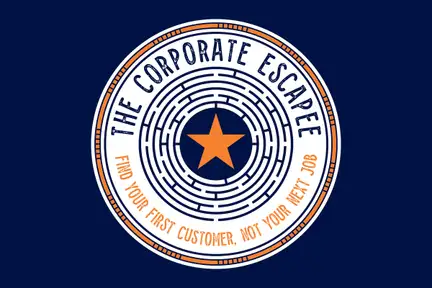
Exit Strategy: The Godfather of the Freelance Economy on Shifting from Corporate to Freelancer w/Jon Younger
In this conversation, Jon Younger discusses the future of work and the rise of freelancing and gig work. He explains the difference between freelancers and gigsters, and the growth of the freelance economy. Jon also shares the four phases of early freelancing and the challenges individuals face when transitioning to freelancing. He discusses how enterprises are starting to think about freelancers and the importance of workforce architecture. Jon emphasizes the need for companies to adapt to the changing landscape of work and the opportunities that freelancers bring. He also provides insights on finding opportunities on freelance platforms. In this conversation, Brett Trainor and Jon Younger discuss various aspects of freelancing and entrepreneurship. They explore the importance of reframing sales as problem-solving and how to effectively ask for the business. They also emphasize the value of taking action and building a business, even without prior experience or talent. The conversation concludes with closing remarks and the possibility of future updates on the freelance world.
Jon’s Bio: As the “Godfather of the freelance economy”, Jon has been the leading voice for the freelance revolution through his Forbes column, advising, and research with the University of Toronto. A former Head of HR and Chief Talent, Jon is the go to for every marketplace executive.
Takeaways
- The freelance economy is growing rapidly, with millions of people working as freelancers or gigsters.
- Transitioning to freelancing requires careful planning and consideration of income volatility, benefits, and the potential for loneliness.
- Enterprises need to rethink how they resource their operations and build a flexible, impermanent workforce.
- Freelancers should focus on their unique skills and problem-solving abilities to stand out in the market.
- Freelancers can find opportunities on freelance platforms, but it's important to differentiate oneself and solve specific problems. Sales should be reframed as problem-solving, focusing on the importance of solving the client's problem rather than selling features and benefits.
- To convert conversations into clients, it is crucial to learn how to ask for the business and confidently state the price.
- Taking action is key to success in freelancing and entrepreneurship, as many people hesitate or do not take any action at all.
- Building a successful business does not necessarily require talent or experience, but rather a willingness to try and learn from the process.
Chapters
00:00 Introduction and Background
03:00 Defining Freelance and Gig Work
07:00 The Growth of Freelancing
10:00 The Shift from Employment to Freelancing
15:00 The Phases of Early Freelancing
18:00 The Future of Work for Enterprises
25:00 The Challenges for Enterprises in Working with Freelancers
32:00 The Rise of Fractional and Interim Work
40:00 The Changing Landscape of Work
45:00 Finding Opportunities on Freelance Platforms
46:01 Reframing Sales as Problem Solving
47:16 Asking for the Business
48:31 Taking Action and Building a Business
49:37 Closing Remarks and Future Updates
Links:
Jon Younger LinkedIn: https://www.linkedin.com/in/jon-younger-phd-57a41455/
The Human Cloud: https://humancloud.work/
